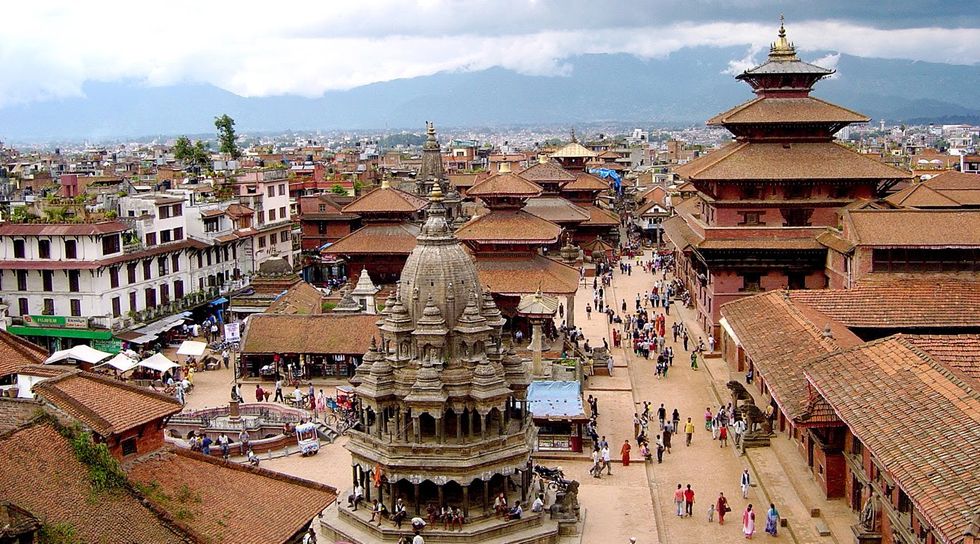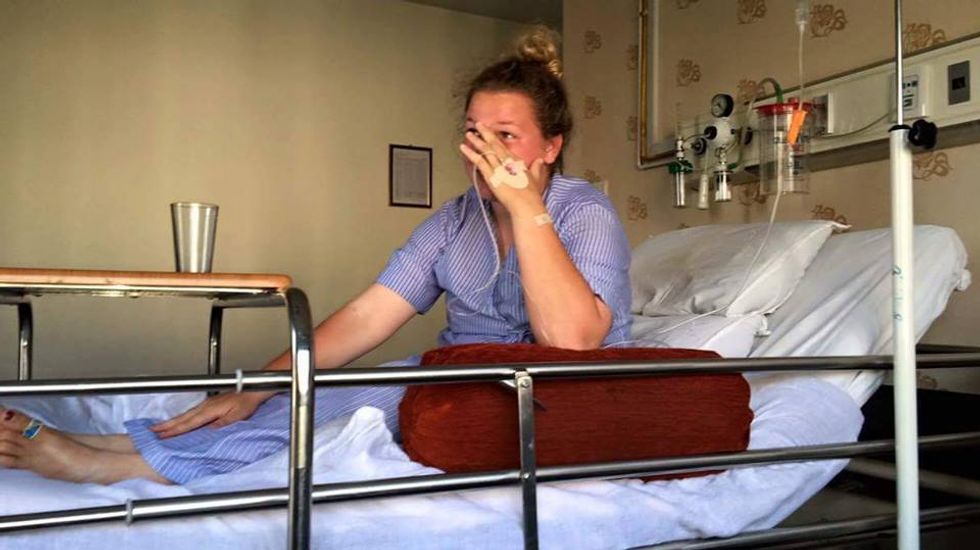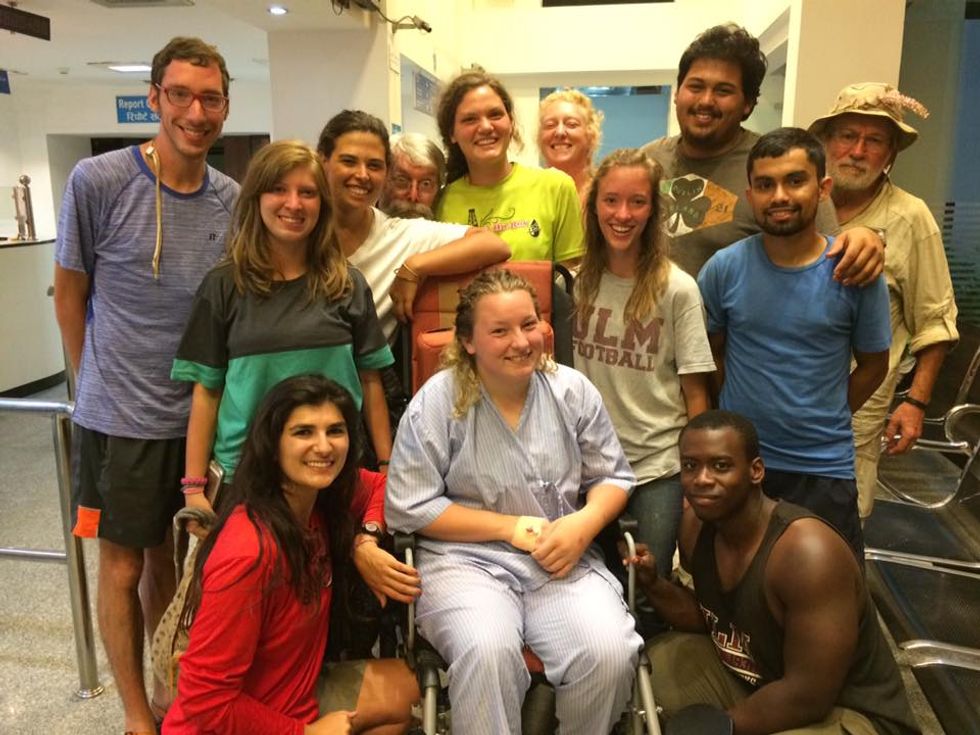On May 17, 2016, I set out on my first overseas mission trip with the Wesley Foundation. We would be hiking into a remote village located in the Chepang Hills of Nepal and staying there for one month. The plan was to build a hostel for the students that lived two to three hours away from the school so they wouldn’t have to travel back and forth every day. To get to the village, we had to drive about six hours to the base of the mountain. Then we had to hike uphill a total of eight hours. After climbing that mountain, I felt invincible—that was, until I was lying in a hospital bed in Kathmandu two and a half weeks later.
I rested in my hospital bed wishing I was one of the monkeys hopping from tree to tree outside my window instead of recovering from my surgery. I couldn’t help but think back to a couple days ago when I was rushed to the hospital in the middle of the night with excruciating pain in my stomach. This night just happened to be one of the times that the government shut down the entire country. On the way to the hospital, we were stopped by a military truck full of soldiers carrying large guns. Our interpreter assured us that it would be okay, but I was not convinced. They exchanged a few words in Nepalese and then the soldiers focused on me. My heart started racing even faster but after a few minutes of talking amongst themselves waved us on. A few minutes later we arrived at the hospital and I was being poked and prodded by a nurse.
The nurse speculated that I had kidney stones but could not diagnose me for sure until I had been given an ultrasound, x-rays, and seen by a doctor. I was admitted to the hospital and given a nice room with a balcony. The nurses came by and pumped me full of antibiotics and extremely potent pain killers every few hours.
After all of my health tests, and a day and a half had passed, the doctor finally came by to tell me the verdict. He introduced himself and then jumped right into it. “Ms. Leonard, all that pain you have been feeling in your stomach was your body passing kidney stones. Unfortunately, one of the stones is too large to pass so we will have to go in and take it out.” He goes on to explain that since I am flying back home in a few short days I have two options: I could stay an extra two weeks and let the stones pass by themselves or I could have a small operation and have the doctor go in and remove the stone. After much deliberation, and a few tears, I said to the doctor in a seemingly confident voice, “Alright, let’s go ahead with the surgery.”
I was shaken out of my reverie by the nurse as she told me I was cleared to go home. Finally, I thought, as she handed me a folder full of paperwork and medicine. Four days later, I arrived back in the United States full of advice and encouragement from the doctor. After reflecting on this experience I realized that I am only human and that I am not invincible. I understood that I needed to take more care of myself and quit being so reckless. Most importantly, I learned to rely more on God instead of myself.










































